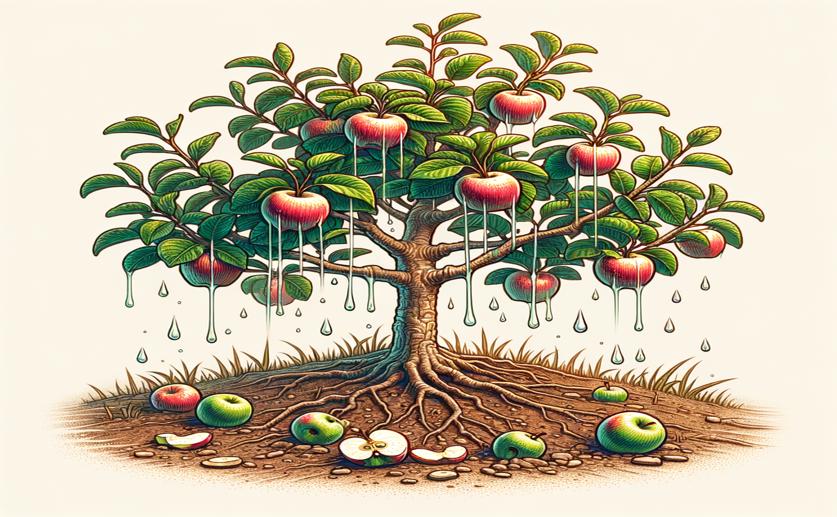
Apple Protein MdBT2 Lowers Drought Tolerance by Targeting MdHDZ27
Jenn Hoskins
13th April, 2024

Image Source: Natural Science News, 2024
Key Findings
- Researchers at Linyi University found a protein, MdHDZ27, that helps apple trees resist drought
- MdHDZ27 works by turning on genes that fight dehydration, improving drought tolerance
- Another protein, MdBT2, limits MdHDZ27's effects by marking it for cellular breakdown
AgricultureBiotechPlant Science
References
Main Study
1) The BTB-BACK-TAZ domain protein MdBT2 reduces drought resistance by weakening the positive regulatory effect of MdHDZ27 on apple drought tolerance via ubiquitination.
Published 12th April, 2024
https://doi.org/10.1111/tpj.16761
Related Studies
2) The ubiquitin-proteasome system as a transcriptional regulator of plant immunity.
3) R2R3-MYB transcription factor MdMYB23 is involved in the cold tolerance and proanthocyanidin accumulation in apple.
4) The ERF transcription factor MdERF38 promotes drought stress-induced anthocyanin biosynthesis in apple.
5) Apple BT2 protein negatively regulates jasmonic acid-triggered leaf senescence by modulating the stability of MYC2 and JAZ2.



 28th March, 2024 | Jim Crocker
28th March, 2024 | Jim Crocker